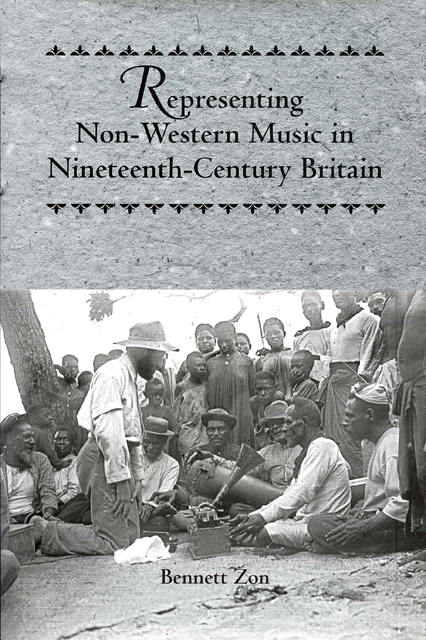Book contents
- Frontmatter
- Dedication
- Contents
- List of Illustrations
- Preface
- Acknowledgments
- Introduction Humanizing the Musical Savage: Orientalism and Racism in the History of British Ethnomusicology
- Part One Early Anthropological Influences
- Part Two Musicology in Transition to Evolution
- Part Three Individualism and the Influence of Evolution: Charles Samuel Myers and the Role of Psychology
- Part Four Retaining Cultural Identity: A. H. Fox Strangways and the Problems of Transcription
- Epilogue The “Ethnomusicology” in Long Nineteenth-Century Representations of Non-Western Music
- Works Cited
- Index
- Eastman Studies in Music
Chapter Four - Cultural Anthropology after Darwin
Published online by Cambridge University Press: 10 March 2023
- Frontmatter
- Dedication
- Contents
- List of Illustrations
- Preface
- Acknowledgments
- Introduction Humanizing the Musical Savage: Orientalism and Racism in the History of British Ethnomusicology
- Part One Early Anthropological Influences
- Part Two Musicology in Transition to Evolution
- Part Three Individualism and the Influence of Evolution: Charles Samuel Myers and the Role of Psychology
- Part Four Retaining Cultural Identity: A. H. Fox Strangways and the Problems of Transcription
- Epilogue The “Ethnomusicology” in Long Nineteenth-Century Representations of Non-Western Music
- Works Cited
- Index
- Eastman Studies in Music
Summary
Without question, anthropology was irrevocably changed by Darwin. Where previously anthropology remained disparate both in its theoretical and professional constructions, after Darwin it emerged as a unified intellectual discipline. This is not to suggest that evolutionary theory was uniformly accepted, nor that it provided an immediately unifying methodological framework for understanding anthropology. What it did do, however, was to focus anthropological minds on a single idea that spanned the full conceptual horizon. As Harris says, Darwin “put together an argument for the evolution of species that was unprecedented in detail, accuracy, and scope.” At the same time, it completely undermined previous systems of thought. According to Stephen Jay Gould:
No scientific revolution can match Darwin’s discovery in degree of upset to our previous comforts and certainties… . The difficulties lie not in this simple mechanism [evolution] but in the far-reaching and radical philosophical consequences—as Darwin himself well understood—of postulating a causal theory stripped of such conventional comforts as a guarantee of progress, a principle of natural harmony, or any notion of an inherent goal or purpose. Darwin’s mechanism can only generate local adaptation to environments that change in a directionless way through time, thus imparting no goal or progressive vector to life’s history.
Darwin’s impact, to use Oldroyd’s term, situated evolution at the vanguard of anthropological thinking, and located it at the intersection of science, ideology, and world view. For anthropology, this meant, among other things, an increasingly reformulated consideration of human origins and progress. Unsurprisingly, however, though Darwin would ultimately form the benchmark against which all evolutionary theories were measured, types of evolutionary theory had existed previously, and many continued to exist afterward alongside Darwin’s own. Variations of Darwin’s own views are considered under the conventional rubric of Darwinism or Darwinianism. Hence, Michael Ruse can write of the “Darwinian paradigm,” or conversely Peter Bowler, the “non-Darwinian revolution.” Stocking, in fact, suggests that we should even distinguish between “ ‘Darwinian’ and ‘Darwinistic.’ “
- Type
- Chapter
- Information
- Publisher: Boydell & BrewerFirst published in: 2023



